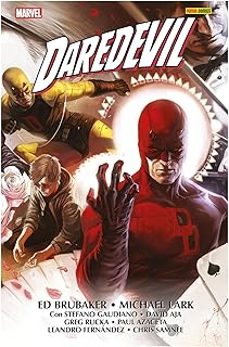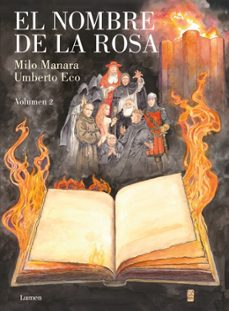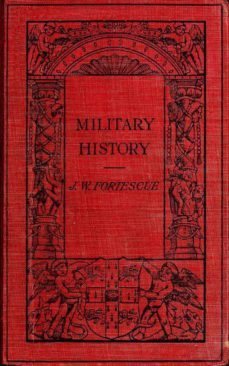Imprescindibles
Más vendidos Libros más leídos eBooks más leídos Todos los libros Todos los libros Autores destacados Series y sagas
Recomendados Libros recomendados Autores destacados Libros que inspiran Vidas con historia LGTBIQ+ English books
Ficción
Literatura Contemporánea Estudios literarios Clásicos Cuentos Poesía Teatro Libros de bolsillo Sagas literarias
Géneros literarios Novela romántica y erótica Novela negra Novela histórica Narrativa fantástica Novela de ciencia ficción Novela de terror Narrativa de humor Narrativa de viajes
No Ficción
Ciencias y tecnología Biología Ciencias Ciencias naturales Divulgación científica Informática Ingeniería Matemáticas Medicina Salud y dietas Formación Idiomas Estilo de vida Libros de Cocina Guías de viaje Narrativa de viajes Deportes Libros de Juegos Manualidades
Humanidades Autoayuda y espiritualidad Ciencias humanas Derecho Economía y Empresa Psicología y Pedagogía Filosofía Sociología Filología Biblioteconomía Estudios filológicos Estudios lingüísticos Estudios literarios Historia y crítica de la Literatura
Infantil
Juvenil
#Jóvenes lectores Narrativa juvenil Clásicos adaptados Libros Wattpad Libros Booktok Libros de influencers Libros de Youtubers Libros Spicy Juveniles Libros LGTBIQ+ Temas sociales Libros ciencia ficción Libros de acción y aventura Cómic y Manga Juvenil Cómic Juvenil Manga Shonen Manga Shojo Autores destacados Jennifer L. Armentrout Eloy Moreno Nerea Llanes Hannah Nicole Maehrer
Libros de fantasía Cozy Fantasy Dark academia Hadas y Fae Romantasy Royal Fantasy Urban Fantasy Vampiros y hombres lobo Otros Misterio y terror Cozy mistery Policiaca Spooky Terror Thriller y suspense Otros
Libros románticos y de amor Dark Romance Clean Romance Cowboy Romance Mafia y amor Romance dramatico Romcom Sport Romance Otros Clichés Enemies to Lovers Friends to Lovers Hermanastros Slow Burn Fake Dating Triángulo amoroso
Cómic y Manga
Novela gráfica Novela gráfica americana Novela gráfica europea Novela gráfica de otros países Personajes, series y sagas Series y sagas Star Wars Superhéroes Cómics DC Cómics Marvel Cómics otros superhéroes Cómics Valiant
Books in English
Books in English Fiction Non Fiction Comic Teen & Young Adult Main Authors Ken Follett Agatha Christie Stephen King Jane Austen Maggie O’Farrell On sale
Books in English for Young Adults Age 13+ Age 15+ Young Adult Authors Rebecca Yarros Sarah J. Maas Brandon Sanderson Ali Hazelwood Alice Oseman
Audiolibros
Literatura Contemporánea Narrativa fantástica Novela de ciencia ficción Novela de terror Novela histórica Novela negra Novela romántica y erótica Historia Historia universal
Humanidades Autoayuda y espiritualidad Ciencias humanas Economía y empresa Psicología y pedagogía Filosofía Infantil Audiolibros infantiles
Ciencia y tecnología Ciencias naturales Divulgación científica Medicina Salud y dietas Arte Cine Música Historia del arte
eBooks
Literatura Contemporánea Narrativa fantástica Novela de ciencia ficción Novela de terror Novela histórica Novela negra Novela romántica y erótica Juvenil Más de 13 años Más de 15 años Infantil eBooks infantiles
Humanidades Autoayuda y espiritualidad Ciencias humanas Economía y Empresa Psicología y Pedagogía Filosofía Historia Historia de España Historia Universal Arte Cine Música Historia del arte
Ciencia y tecnología Ciencias naturales Divulgación científica Medicina Salud y dietas Filología Estudios lingüísticos Estudios literarios Historia y crítica de la Literatura Estilo de vida Cocina Guías de viaje Ocio y deportes
SIR J. W. FORTESCUE
Recibe novedades de SIR J. W. FORTESCUE directamente en tu email
Filtros
Del 1 al 3 de 3
ANBOCO 9783736419490
There is little in these lectures, or at any rate in three out of four of them, which I have not written at greater length in other volumes. I therefore publish them unwillingly, and in deference only to the wishes of some of my audience, whose good opinion I greatly value, and whose kindly sympathy I shall never forget. If this little volume should set but one student thinking seriously as to the meaning of military history, its object will be fully accomplished.The spelling of Indian names has been, as usual, a stumbling-block. No doubt I shall be asked why I have used the form Narbada for the more familiar Nerbuddha, and yet written Hyder Ali instead of Haidar Ali. I can only say that when the form Kalkata (or whatever may be the Hunterian spelling) is substituted for Calcutta, I shall be prepared to plead guilty to inconsistency.J. W. F.
Ver más
eBook
Good Press 4064066215743
In "Military History: Lectures Delivered at Trinity College, Cambridge," J. W. Sir Fortescue presents a comprehensive exploration of military history through a series of engaging lectures that seamlessly blend scholarly rigor with eloquent narrative style. Reflecting his expertise in both historical analysis and military strategy, Fortescue delves into significant battles, the evolution of warfare, and the intricate relationship between military endeavors and societal change. His work is contextualized within contemporary historical debates of the late 19th and early 20th centuries, making it an essential text for understanding the dynamics of military conflicts and their impact on national identity. Sir J. W. Fortescue, a distinguished military historian and a prominent figure in education during his time, has a background rich in military observation and analysis, having served in the British Army and engaged deeply with the study of military affairs. His experiences and scholarly insights provide him with a unique perspective, imbuing his lectures with authority and depth. His influential career at Trinity College was marked by his passion for elucidating the complexities of military history to a broader audience. For anyone interested in the intricacies of military dynamics and their historical context, Fortescues lectures offer a compelling narrative that invites readers to reflect on the lessons of history. His sophisticated yet accessible prose makes it an invaluable resource for both students and enthusiasts of military history alike.In this enriched edition, we have carefully created added value for your reading experience:- A succinct Introduction situates the works timeless appeal and themes.- The Synopsis outlines the central plot, highlighting key developments without spoiling critical twists.- A detailed Historical Context immerses you in the eras events and influences that shaped the writing.- A thorough Analysis dissects symbols, motifs, and character arcs to unearth underlying meanings.- Reflection questions prompt you to engage personally with the works messages, connecting them to modern life.- Handpicked Memorable Quotes shine a spotlight on moments of literary brilliance.- Interactive footnotes clarify unusual references, historical allusions, and archaic phrases for an effortless, more informed read.
Ver más
eBook
GOOD PRESS 8596547780779
In "The History of the British Army," J. W. Fortescue delivers a comprehensive and meticulously researched chronicle of one of the worlds oldest military institutions. With a narrative style characterized by its clarity and erudition, Fortescue deftly weaves together political, social, and military histories, tracing the evolution of the British Army from its nascent stages to its pivotal role in shaping global conflicts. The books structure, organized chronologically and thematically, offers readers insights into key battles, military strategies, and the sociopolitical context that influenced the armys development, making it an essential text for historians and military enthusiasts alike. J. W. Fortescue, a distinguished British historian and soldier, had intimate knowledge of military structures and operations that profoundly informed his writing. His career in the army, coupled with his academic pursuits in history, provided him with a unique perspective on warfare and institution-building. Fortescue wrote this work during a time when British identity was inextricably linked with its military prowess, positioning him to critically analyze the forces that shaped the British Army. This book is highly recommended for anyone interested in military history, offering an authoritative account that not only details battles and strategies but also reflects on larger themes of nationalism and imperialism. Fortescues scholarly rigor and engaging prose make "The History of the British Army" an indispensable resource for both casual readers and serious historians.In this enriched edition, we have carefully created added value for your reading experience:- A succinct Introduction situates the works timeless appeal and themes.- The Synopsis outlines the central plot, highlighting key developments without spoiling critical twists.- A detailed Historical Context immerses you in the eras events and influences that shaped the writing.- A thorough Analysis dissects symbols, motifs, and character arcs to unearth underlying meanings.- Reflection questions prompt you to engage personally with the works messages, connecting them to modern life.- Handpicked Memorable Quotes shine a spotlight on moments of literary brilliance.- Interactive footnotes clarify unusual references, historical allusions, and archaic phrases for an effortless, more informed read.
Ver más
eBook
Del 1 al 3 de 3



























